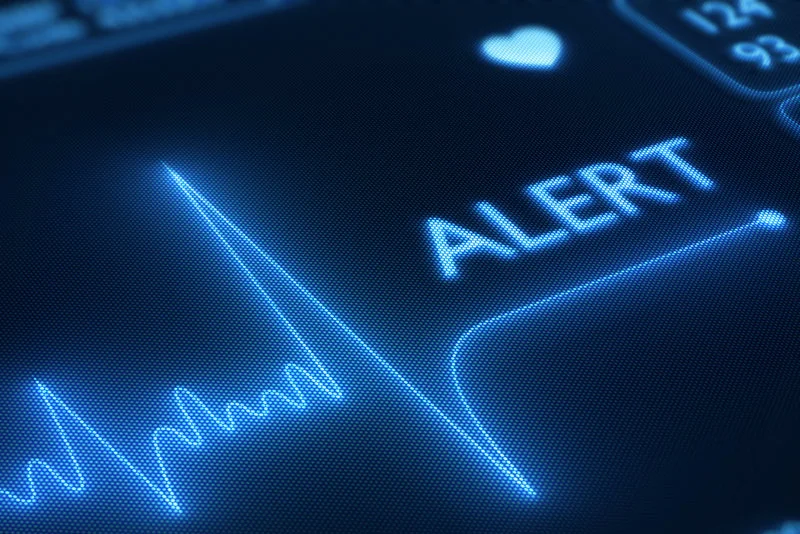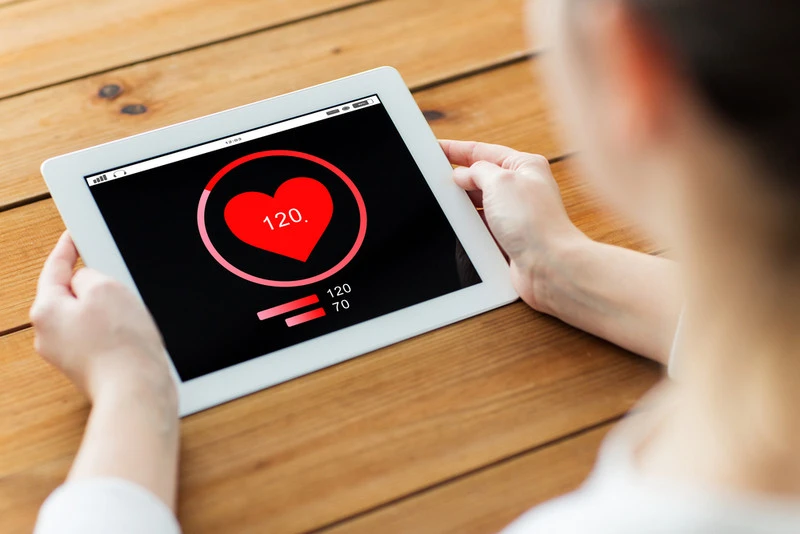Heart rate monitoring can be a valuable tool for older adults in tracking their health and improved...
Heart rate monitoring can be a valuable tool for older adults in tracking their health and improved well-being. From providing clear indications and evaluations of cardiovascular health to preventing heart diseases and accidents, heart rate monitoring devices are an effective way to help seniors monitor their health. This blog will explore the benefits of such a device.
What Is Heart Rate Monitoring and Why Is It Important?
Heart rate, also known as pulse, is the number of times your heart beats per minute. It is a vital health metric that can provide important information about your cardiovascular health and overall fitness.
A heart rate monitoring device is a tool that allows you to track and monitor your heart rate in real-time, either by wearing a device on your wrist or chest or by using a smart device such as a smartphone or smartwatch. These devices typically use sensors to measure the electrical activity of your heart and then display your heart rate in beats per minute on a screen or app.
You can gain valuable cardiovascular health and fitness insights by tracking your heart rate and adjusting your lifestyle or exercise routine. This can help you prevent potential health issues and improve your overall well-being.
How can a heart rate monitoring device benefit older adults?
1. Having a Clear Indication and Evaluation of the Condition of Your Cardiovascular System
A device for monitoring heart rate can provide older adults with a clear and precise indication of their cardiovascular health. By regularly tracking their heart rate, older adults can evaluate their heart health and identify potential issues or abnormalities, which will help them make informed decisions about their health and seek medical attention if necessary.

Furthermore, a heart rate variability monitoring device can track your resting heart rate, maximum heart rate, and average heart rate over time. This can help you maintain a healthy heart rate and identify any potential changes in your cardiovascular health. A heart rate monitoring device can also be used to monitor your heart rate during exercise, which can help you determine your optimal intensity level.
2. Exercising Safely - Controlling the Maximum Intensity of a Workout that is Right for Your Body and Age
As we age, our bodies become less able to handle intense physical activity. A heart rate monitoring device can help older adults exercise safely by giving them real-time heart rate feedback. This can help them avoid overexertion and ensure that they perform exercises appropriately for their age and fitness level.
Older adults may want to take caution when doing exercises that they have not done before or require too much effort. Wearing a heart rate monitoring device can help them monitor their breath, exertion level, and overall exertion level to ensure that they stay within their desired intensity range throughout the workout. Monitoring their heart rate can also allow older adults to adjust their exercise frequency and intensity better.
3. Preventing Heart Diseases and Accidents by Tracking Fluctuations and Abnormalities
Heart disease is a leading cause of death among older adults. By regularly tracking their heart rate, older adults can identify fluctuations or abnormalities in their heart rate and seek medical attention if necessary. This can help prevent potential heart issues and reduce the risk of heart disease or other health problems. Additionally, a heart rate monitoring device can alert older adults to potential heart problems in real-time, which can help prevent accidents or other emergencies.
4. Improving Mental Health and Well-Being
If you are a senior, there is a lot to think about. You may feel anxious or depressed or experience painful symptoms in your body. A heart rate monitoring device can help you track your heart rate and take regular selfies with happy expressions to reduce stress, anxiety, and depression. This can help improve mental health and well-being, giving you more energy to navigate the day.
Additionally, a heart rate monitoring device can track your breathing and provide breathing exercises to help improve mental health. You will also have an easier time keeping track of your fitness goals by using a heart rate monitoring device paired with a fitness tracker. A heart rate monitoring device can help older adults improve their sleep and maintain a healthy, balanced lifestyle.

A remote heart rate monitoring solution can help your loved ones monitor your health. It can also alert you if your heart rate goes above or below a certain level and can even alert a doctor if necessary. Some devices also feature activity-tracking and sleep-monitoring capabilities.
5. Monitoring Heart Rate to Improve Sleep Quality in Seniors
With a heart rate monitoring device, seniors can monitor their sleep patterns to ensure that they get enough rest. Because heart rate is an indicator of your sleep quality, a heart rate monitoring device can help you understand the quality of your sleep and determine whether it is poor or good.
You can wear a heart rate monitoring device to track your heart rate overnight to identify any sleep disruptions and determine whether you are suffering from sleep apnea or other sleep disorders. Monitoring your heart rate will allow you to adjust your lifestyle or sleep pattern if you notice that you are experiencing a sleep disorder. This can help improve the quality of your sleep and reduce the risk of health problems and accidents caused by poor sleep.
Conclusion
Heart rate monitoring devices can be an effective tool for older adults to track their health and well-being. By providing clear indications and evaluations of cardiovascular health, enabling safe exercise, and preventing heart diseases and accidents, these devices can help seniors maintain their health and improve their overall quality of life.
When choosing a heart rate monitoring device, it is important to consider its accuracy and reliability. Many devices are highly accurate, but it is always a good idea to check the manufacturer's specifications and customer reviews to ensure that you get a reliable and effective product.
Additionally, consider the device's features and capabilities and its compatibility with other devices or apps you may use. With these considerations in mind, a heart rate monitoring device can be a valuable asset for older adults in maintaining their health and well-being.